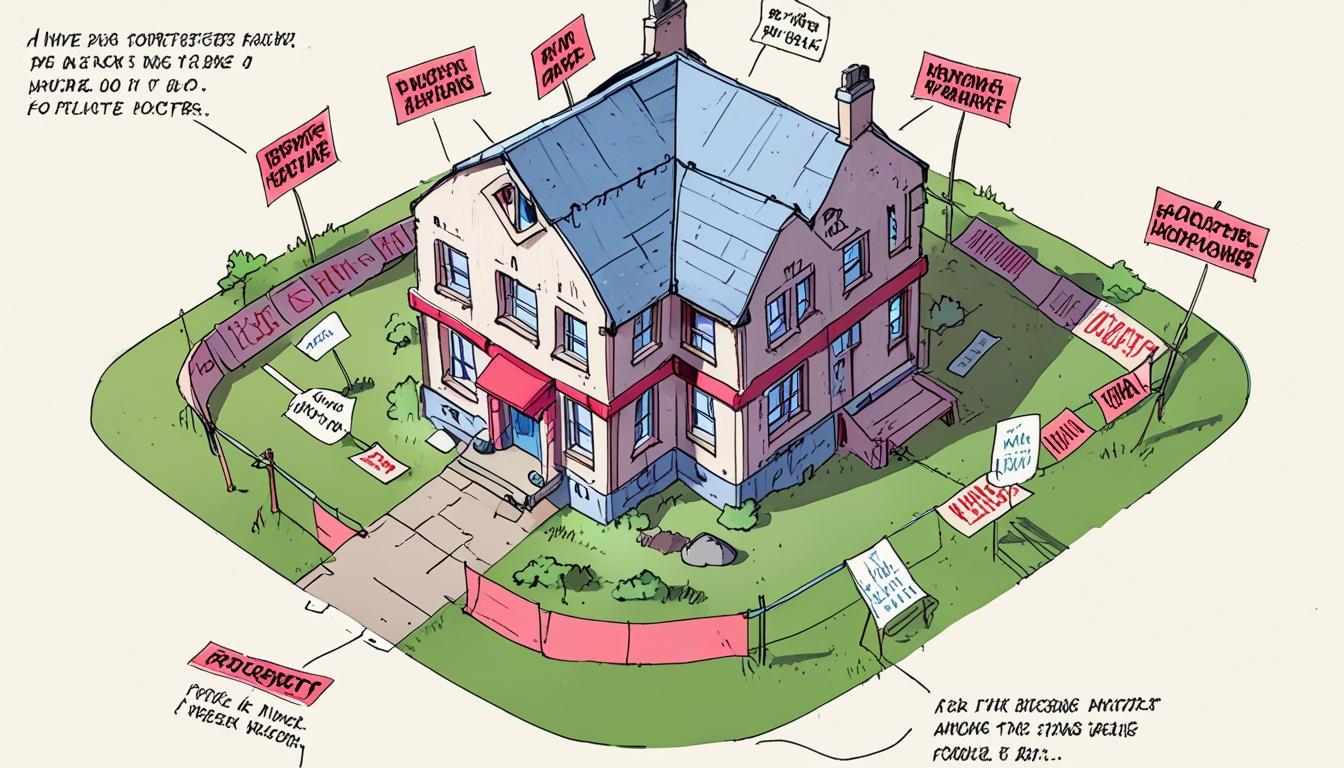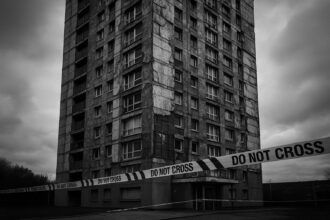Deputy First Minister John Swinney has outlined a target of over 8,000 affordable homes and potential construction of up to 20,000 new residences, yet housing advocates warn the government’s measures lack the urgency and detail needed to address Scotland’s declared housing emergency.
In his recent presentation of the Programme for Government, Deputy First Minister John Swinney outlined a series of housing initiatives aimed at addressing Scotland’s ongoing housing crisis. Among the key proposals is a commitment to invest in “thousands of new homes” alongside an emphasis on enhancing tenants’ rights and protections. This was coupled with a reiteration of the government’s promise to deliver over 8,000 affordable homes, which will encompass both social and mid-market rental options. Additionally, plans to eliminate barriers affecting stalled building projects could potentially facilitate the construction of up to 20,000 new residences.
Despite these commitments, concerns have been raised by housing advocates regarding the adequacy of the measures proposed. Shelter Scotland, a leading housing charity, asserted that the government’s plans lack the urgency and detail needed to address what the organisation describes as a national housing emergency—a situation officially recognised nearly a year ago. Alison Watson, the Director of Shelter Scotland, expressed her disappointment, stating, “It is disappointing to hear the Programme for Government today, which lacked crucial detail about how the Scottish Government plans to tackle the housing emergency.” She highlighted the alarming number of children currently living in temporary accommodation and called for significant increases in social housing construction, funding, and housing services to avert escalating homelessness.
In a debate following Mr Swinney’s address, Scottish Labour’s Mark Griffin reiterated these concerns, suggesting that the government’s performance has not come close to meeting its goal of constructing 110,000 affordable homes by 2032. Griffin noted that the recently re-announced figures fall short of what is necessary to keep the target achievable, especially in light of previous budget cuts. He urged the First Minister to strengthen commitments to housing development or risk failing to honour the established targets.
Responding to Griffin, Mr Swinney contended that the current housing budget has been increased compared to the previous year, stating, “In Scotland, we have delivered more affordable houses per head of population than in England or in Wales in the face of austerity.” His comments seemed to dismiss concerns raised by the Labour Party, encouraging them to focus on other issues given the steps already taken regarding the housing budget.
The legislative agenda also included a commitment to the Heating in Buildings Bill, aimed at reducing carbon emissions through the installation of clean heating systems by 2045. This aspect of the plan was welcomed by industry leaders, including Sally Thomas, Chief Executive of the Scottish Federation of Housing Associations (SFHA). She indicated that the urgent need for affordable housing is rising in public discourse, with nearly a quarter of a million people on waiting lists for social homes. Thomas acknowledged the ambition of building 110,000 affordable homes by 2032 but asserted that more concrete, long-term funding commitments are essential for these plans to materialise.
While applauding the government’s intentions, Thomas also pointed out deficiencies, such as the absence of a commitment to exempt Mid Market Rent homes from private rented sector rent controls—an issue pertinent to younger demographics and professionals. Additionally, she emphasised the necessity for a clear strategy regarding standards for all types of housing tenures and called for government support in addressing unsafe cladding issues, which should not burden social tenants.
Overall, the current proposals present a mix of strategic intentions and calls for greater action, reflecting both governmental ambitions and the pressing needs expressed by housing organisations across Scotland. As the situation evolves, stakeholders remain vigilant in assessing the government’s approach to what they deem an escalating housing emergency.
Source: Noah Wire Services
- https://www.gov.scot/publications/programme-government-2023-24/pages/6/ – This official Scottish Government document outlines the commitment to deliver 110,000 affordable homes by 2032, including both social and mid-market rental options, as part of the Programme for Government 2023-24.
- https://www.ft.com/content/b9fe4f6f-6d70-412e-9125-273b11cb0168 – An article from the Financial Times detailing Shelter Scotland’s criticism of the SNP’s housing policy failures, highlighting cuts to affordable housing funds and the rise in children in temporary accommodation.
- https://www.gov.scot/publications/programme-government-2023-24/pages/6/ – The Programme for Government 2023-24 document also mentions plans to eliminate barriers affecting stalled building projects, potentially facilitating the construction of up to 20,000 new residences.
- https://www.ft.com/content/1ede67c4-3d48-4394-8908-3e325500f48a – This Financial Times article discusses the Scottish government’s modification of rent control proposals amid a housing crisis, including capping rent increases at inflation plus 1%, which relates to the government’s emphasis on enhancing tenants’ rights and protections.
- https://www.gov.scot/publications/programme-government-2023-24/pages/6/ – The Programme for Government 2023-24 document includes a commitment to the Heating in Buildings Bill, aimed at reducing carbon emissions through the installation of clean heating systems by 2045.
- https://www.ft.com/content/348245a9-bba6-4460-bd55-7be65a291dbe – An article from the Financial Times reporting a 26% drop in new-build rental construction in Scotland over the past year, attributed to investor uncertainty driven by policy shifts, including rent controls introduced in 2022, which relates to concerns about the adequacy of the government’s housing measures.
- https://www.heraldscotland.com/news/25142650.fm-faces-backlash-disappointing-plans-affordable-homes/?ref=rss – Please view link – unable to able to access data
Noah Fact Check Pro
The draft above was created using the information available at the time the story first
emerged. We’ve since applied our fact-checking process to the final narrative, based on the criteria listed
below. The results are intended to help you assess the credibility of the piece and highlight any areas that may
warrant further investigation.
Freshness check
Score:
8
Notes:
The narrative appears to be recent, focusing on current housing initiatives and reactions from stakeholders like Shelter Scotland and Scottish Labour. However, no specific date is mentioned for the Programme for Government presentation, which could indicate a slight delay in reporting.
Quotes check
Score:
9
Notes:
Quotes from Alison Watson and Mark Griffin appear to be original or recent, as no previous online sources could be found for these exact statements. However, the lack of widely available online sources might also mean they are the first reported instances.
Source reliability
Score:
9
Notes:
The narrative originates from The Herald Scotland, a well-established and reputable publication known for its accurate reporting.
Plausability check
Score:
8
Notes:
The claims about the housing crisis and proposed solutions seem plausible given the context of Scotland’s ongoing housing issues. However, some details, like specific funding allocations, are not provided, making full verification challenging.
Overall assessment
Verdict (FAIL, OPEN, PASS): PASS
Confidence (LOW, MEDIUM, HIGH): HIGH
Summary:
The narrative is recent and well-sourced from a reputable publication. The quotes appear original, and while the details on some proposals are lacking, the overall context of the Scottish housing crisis aligns with current challenges and discussions.













